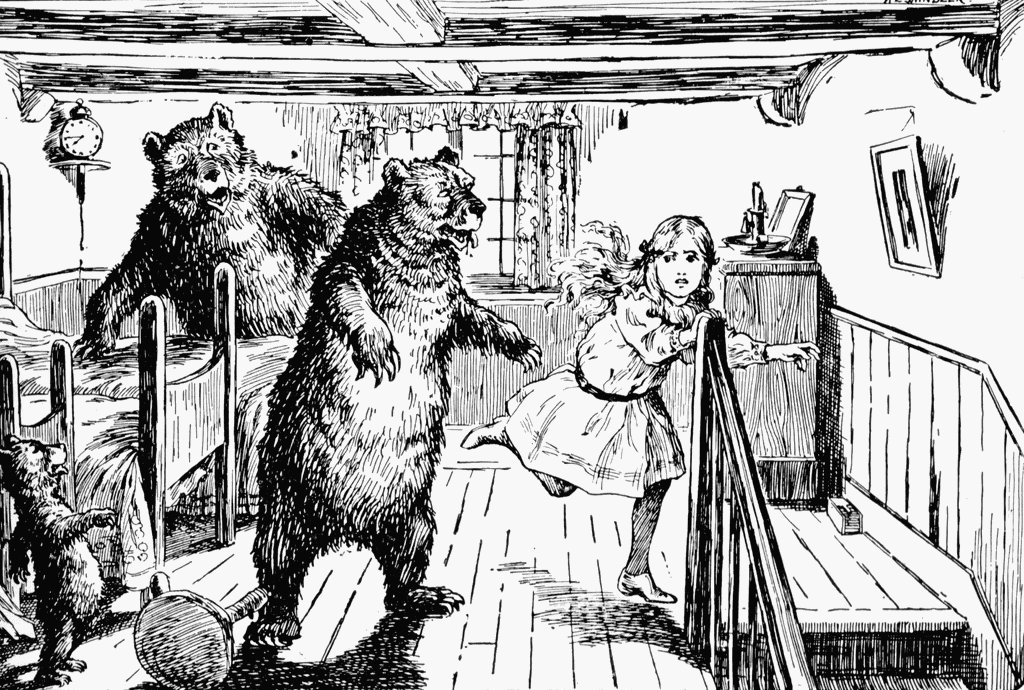 A lot of people decide to write kids books because they think kids today are “lacking in values” (not sure what this means) or need good, wholesome stories that “reinforce values.”
A lot of people decide to write kids books because they think kids today are “lacking in values” (not sure what this means) or need good, wholesome stories that “reinforce values.”
I love values!!!
(just not in most kids’ books)
Look, I like values as much as the next person, and as a parent, I do my best to share mine with my kids, all day, every day. But not in kids’ books.
Basic Principle #2: Almost without exception, your book should be about STORY, not values.
Trying to force values into a story where they don’t belong is the #1 mistake of beginning (and some not-so-beginning) children’s authors.
If you believe that the “moral” of the story of Goldilocks and the Three Bears is “never intrude on strangers’ homes,” that’s lovely. But you still have to tell the story, in a compelling way. You must create the characters and weave the plot from beginning to middle to end. And you cannot throw in a clunky ending where Goldilocks is somehow punished for her curious nature unless it flows naturally from the story.
Believe it or not, I have read a couple of bad versions of the Goldilocks story lately which forgot this rule. Yes, this even happens (more rarely, thank goodness) in professionally-written and -published books.
So what were the values or moral lessons in these two versions?
Goldilocks: Moral #1
In one version, Goldilocks learns the lesson to never, ever go into people’s houses without permission. Blah. What kid doesn’t know that? It was actually a good book, too, right up until the point where the (professional, published) author decided to inject the moral. No idea how that got past the editors.
Goldilocks: Moral #2
In the other, the bears learn the lesson that they must forgive Goldilocks and welcome her into their home. They shake paws, invite her to stay and everybody winds up being good, good friends.
In neither case does the “moral” outcome flow from the story. In both of these books, the ending felt tacked-on and perfunctory. This happens a lot with modern fairytale adaptations, because writers feel they can’t just publish a straight story without offering some kind of clever twist (they’re probably right).
Just for fun, can you think of other morals / values we’d like to impart through or force onto this familiar tale?
Of course you can… that’s why so many of these books are flooding the market. But it’s also why so many of them are simply awful reads. Here are just a few off the top of my clever little head:
- Goldilocks comes to understand the importance of taking care of others’ property (no more oopsies with the chair).
- Goldilocks learns that sharing isn’t just one-sided and goes down to the kitchen to whip up a fresh batch of porridge.
- Goldilocks realizes how privileged / spoiled she has been, with her curly golden locks, and spends an hour styling Mama Bear’s hair into a slightly-coarser, browner version of her own fabled ringlets.
- The bears, having discovered how much they actually love company and hate long walks through the dreary woods, relocate to the nearest Big City.
Well, you see where I’m going with this. All of these “endings” are artificial – they feel forced. And so do most values when you stick them where they don’t belong.
Of course, there are exceptions to every rule, and some truly lovely kids’ books that do happen to impart values. I’d love to hear about great ones you’ve found.
Or, just for fun, use the Comments section to post any great “alternative endings” you can think up to that Goldilocks story!












After seeing all the "issues" Goldilocks ran into, the Three Bears decide to hire her on as quality control. No more porridge that's too hot or too cold, no more flimsy chairs or hard, scratchy beds... finally life will be "just right."
ReplyDeleteYes! I love it... I can definately see her earning her keep that way. :-)
Delete